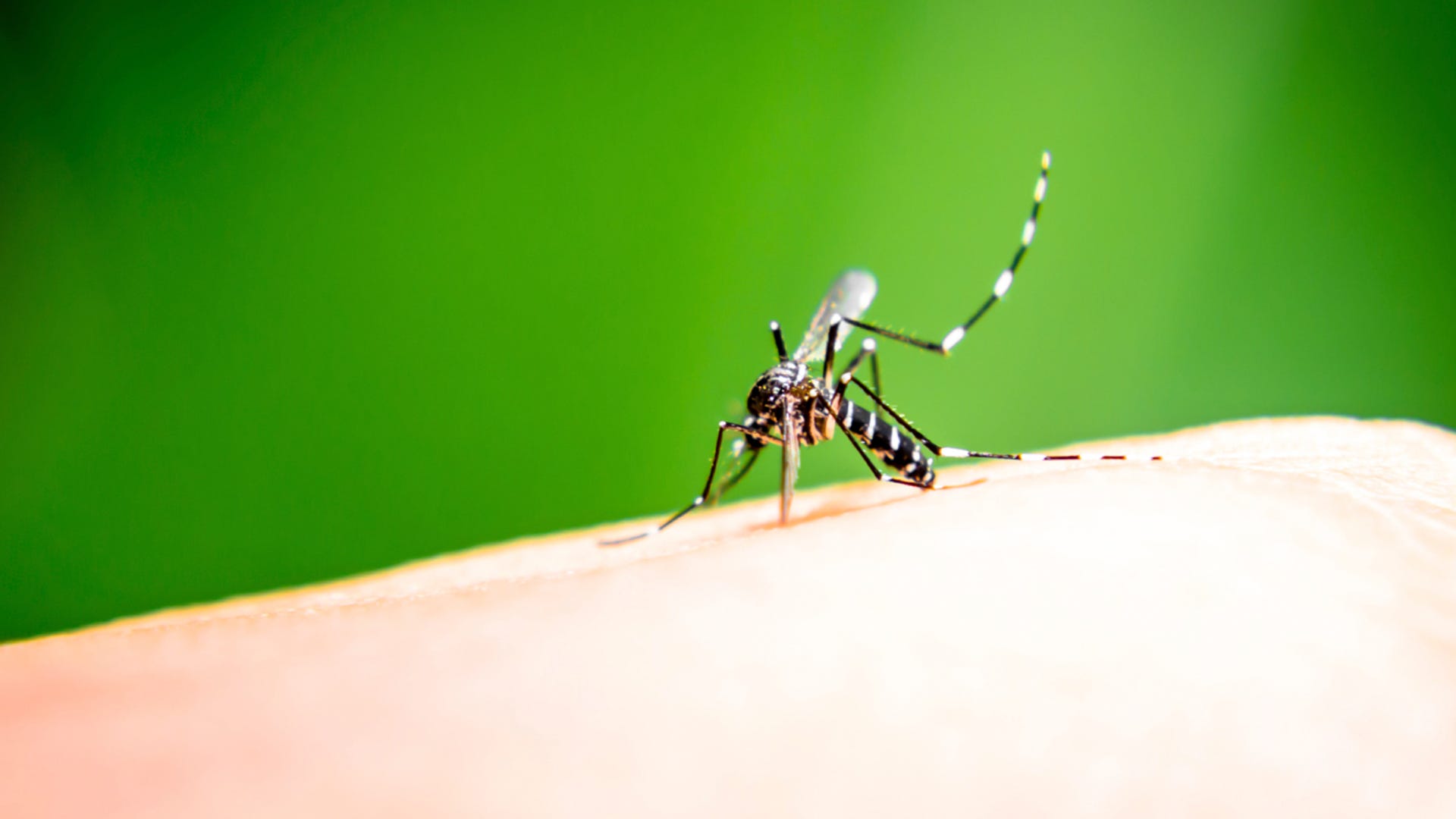
Are you the sort of person who’s always covered in mosquito bites? While you’re itching and reaching for the Calamine lotion, you might think you have more bites than everyone else. It’s not all in your head. It turns out mosquitoes are attracted to certain people — and there are a few things you can do to get these insects to buzz off.
What Attracts Mosquitoes?
Mosquitoes aren’t actually most attracted to humans. Only female mosquitoes bite, and they seek out vertebrates to bite to obtain the nutrients to properly develop eggs. When given the choice, biting mosquitoes generally opt for smaller animals. These insects aren’t the best fliers and don’t have the best vision. They generally rely on a variety of attractants, including movement and color to find their food sources. Mosquitoes are drawn to food targets by detecting lactic acid, CO2 — the gas we exhale — and other attractants. They will also hone in on darker-colored fabrics and shapes as well as moving objects, since these are usually the most promising targets.

Are Mosquitoes Attracted to Certain People?
About 20 percent of the population sees an above-average incidence of mosquito bites. In fact, about 85 percent of why mosquitoes are attracted to you comes down to your genetics, researchers say. Things like your blood type and how much lactic acid you have on your skin play a big role. In the past, popular wisdom suggested wearing perfume, eating salty snacks or foods with potassium, such as bananas, increased your risk of mosquito bites. But scientists have found these to be myths.
Why Mosquitoes Bite Some and Not Others
According to research, you are more at risk for mosquito bites if you:
- Are pregnant
- Are obese or overweight (because you might exhale more CO2)
- Have an O blood type (you attract more mosquitoes than friends with Type A or B blood)
- Have recently had alcohol (this increases your metabolic rate and the amount of CO2 you produce)
- Have a higher body temperature
- Have sweat on your skin
- Produce more lactic acid, uric acid and Octenol through your pores (these are attractants mosquitoes detect through their antennae)
- Have recently exercised (your raised metabolic rate increases your CO2 emission)
- Are moving (it’s easier for mosquitoes to spot you)
- Are wearing dark clothing (dark colors stand out more to mosquitoes)
- Haven’t showered in a day or more (old sweat is more appealing to mosquitoes, especially to the species carrying malaria)
If you’re not sweating or breathing heavily and don’t have these other risk factors, you’ll end up getting bitten less. In fact, your chances of getting bitten go down dramatically if you’re around people who have stronger mosquito-attracting attributes. In addition, researchers have found that people who seem to repel mosquitoes may be giving off a chemical that acts as a natural repellent. Unfortunately, replicating this chemical in the lab has been unsuccessful so far.
What to Do If You’re a Mosquito Magnet
Nobody knows how many people globally are bitten by mosquitoes each year, but more than a million are killed by mosquito bites annually, according to the World Health Organization. That’s a huge problem. If you’re one of the unlucky few who seem to get more than your fair share of mosquito bites, experts say there are a few things you can do to reduce your chances:
- Shower after exercising to reduce the presence of sweat and CO2
- Avoid exercising outdoors, where you’ll produce a big cloud of CO2 that will attract mosquitoes
- Wear light-colored clothing and long-sleeved shirts are best
- Avoid the outdoors during the morning and dusk, when mosquitoes are most active
- Get rid of puddles and other sources of standing water near your home where mosquitoes can breed
Another way to reduce your chances of being bitten is to reduce the mosquito population where you live. It’s simple: When there are fewer mosquitoes around, you’re mathematically less likely to be bitten. A scientifically proven way to control mosquitoes is a mosquito trap. Mosquito Magnet® mosquito traps work by converting propane into CO2 and adding moisture, heat and secondary attractants. Essentially, the Mosquito Magnet® emits everything making you attractive to mosquitoes. Instead of biting you, mosquitoes approach the trap, where a vacuum pulls them into a net where they will dehydrate and die. With female mosquitoes attracted to and trapped in the Mosquito Magnet®, fewer mosquitoes are available for laying eggs and reproducing. Over time, the mosquito population is reduced, allowing you to enjoy the outdoors again. If you’d like to reduce your chances of getting bitten, don’t try to change your genetics. Instead, control your mosquito population with a Mosquito Magnet® mosquito trap.
Are You A Mosquito Magnet?
Tell us about your efforts to reduce the population of mosquitoes in your yard in the comments below or when you visit Mosquito Magnet® on Facebook. If you have questions about our mosquito traps, contact us online or call us at (800)953-5737. For more ideas on staying safe from mosquitoes from Mosquito Magnet®, subscribe to our E-Newsletter.



